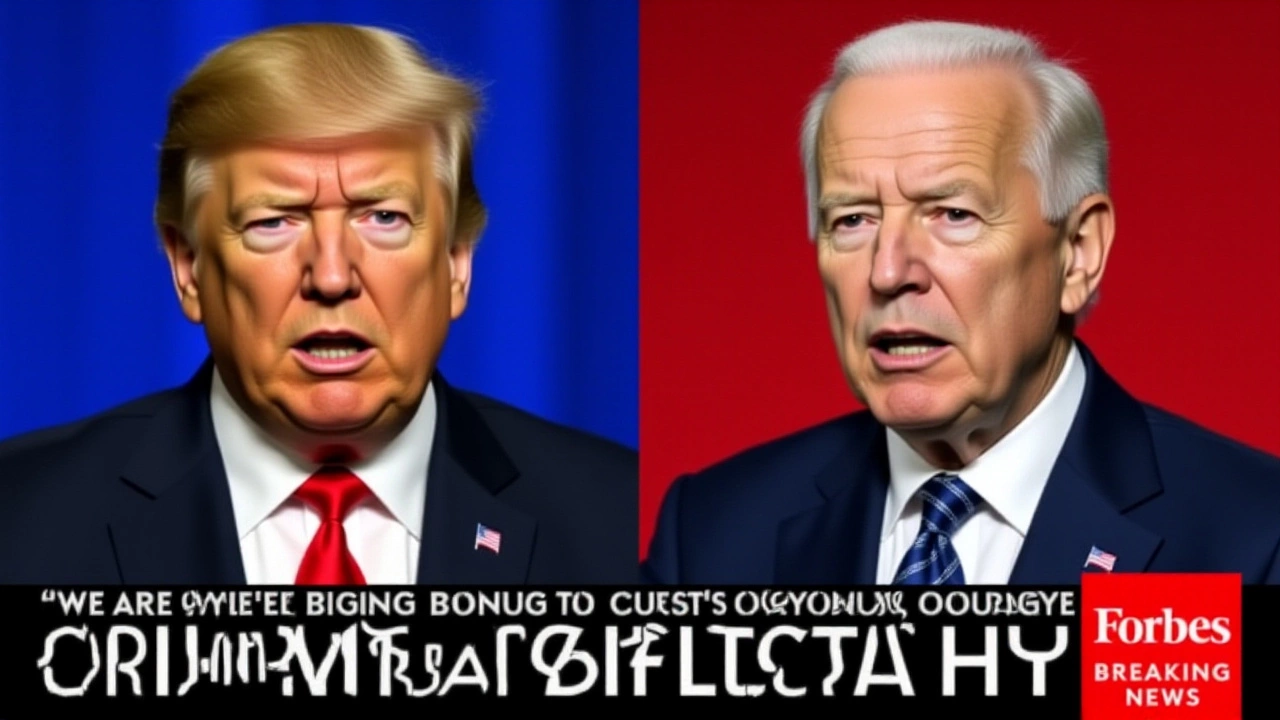
When Zohran Mamdani, New York City Councilmember for District 36 became the target of a novelty shirt campaign, the backlash was anything but tongue‑in‑cheek.
The New York Young Republicans Club, a 200‑member group that calls itself a bridge for voters aged 18‑40, started selling T‑shirts emblazoned with "Deport Zohran" on July 20, 2025. The shirts appeared on the club’s online store, and the move followed a July‑2025 letter from Andy Ogles, Republican congressman from Tennessee’s 5th district, to the Department of Justice demanding a review of Mamdani’s naturalization paperwork.
How the Campaign Unfolded
The Salon investigation published on July 21, 2025 laid out a timeline that reads like a playbook for modern political harassment. First, Ogles’s letter claimed Mamdani’s application hid "certain affiliations," a vague accusation that set off a chain reaction. Within days, a club member identified only as “Berger” defended the shirt sale, saying the issue was about "raising the bar for what it means to be a citizen." Then, house chairwoman Elizabeth Ruh, 28, acknowledged the merchandise but dismissed the deportation talk as jokey, insisting, "I don’t think he’s here illegally."
But the rhetoric didn’t stop at club meetings. Republican lawmakers from Texas and New York, as well as a Fox News legal analyst, added their own incendiary comments, ranging from calling Mamdani a "little Muhammad" to demanding he "go back to the third world." Even Elise Stefanik, a rising star in the GOP and likely 2026 gubernatorial nominee, labeled the councilmember a "jihadist." Across the city, Mayor Eric Adams warned that Mamdani was "uplifting Hamas."
Historical Context: From Birtherism to Modern Day Citizenship Attacks
Mother Jones published a companion piece titled "It Never Stopped Being Birtherism" that traced the lineage of these attacks back to the 2008‑09 Obama birther movement. The outlet noted a "stunning wave of Islamophobic bigotry" aimed at Mamdani, echoing tactics used against former President Barack Obama but with a new twist: the threat of revoking naturalized citizenship. That threat mirrors the extremist propaganda of Idi Amin’s Uganda, where Mamdani’s father fled persecution—a personal history that makes the smear campaign feel especially cruel.
Legal experts warned that such denaturalization drives could set a dangerous precedent. Professor Rashida Ahmed of Columbia Law School told Mother Jones that "using citizenship as a political weapon erodes the very fabric of constitutional protections." So far, the Department of Justice has not confirmed receipt of Ogles’s letter, and spokesperson Allison Leavitt said on July 18, 2025 that any investigation would hinge on the facts, not partisan flair.
Reactions From the Ground
When asked about the shirt sales, Berger insisted it was a "question of values," not a personal vendetta. "If his values don’t comport with the interests of this country, the DOJ should act," he said. Ruh, meanwhile, doubled down on a partisan narrative, claiming the Democratic Party is "the party of racists, the Confederate South, the KKK, Jim Crow, redlining, etc." Her remarks sparked a wave of counter‑protests outside the club’s Manhattan office at 1501 Broadway in the first week of August.
Local activists organized a "Citizenship Solidarity" rally in Queens on August 5, where Mamdani spoke about his father’s escape from Amin’s regime and the irony of being targeted for the very citizenship his family risked everything to secure. "My family’s story is one of hope, not suspicion," Mamdani told a crowd of 300, adding that the shirt campaign felt like a modern‑day "McCarthyism" aimed at immigrants.

Impact on Democratic Norms and Future Outlook
The episode underscores how partisan grassroots groups can weaponize bureaucratic processes to intimidate opponents. By turning a novelty T‑shirt into a political threat, the New York Young Republicans Club has blurred the line between satire and harassment. If the DOJ were to open an investigation based solely on Ogles’s unsubstantiated claims, it could embolden similar campaigns nationwide.
Analysts predict the controversy will linger into the 2026 election cycle. Stefanik’s repeated attacks could boost her profile among hard‑right voters, while Democrats may rally around Mamdani as a symbol of immigrant resilience. The club’s leadership, including Ruh, faces internal pressure: some members argue the shirt stunt harms the organization’s credibility with moderate voters.
What's Next?
Upcoming milestones to watch: a scheduled hearing before the House Judiciary Committee on September 12, 2025, where Ogles is expected to defend his letter; a potential civil rights lawsuit filed by the Council’s legal team; and the New York Young Republicans Club’s annual fundraiser on October 3, where the "Deport Zohran" shirts are slated for a final run.
At the same time, Mamdani plans to introduce legislation aimed at protecting naturalized citizens from political denaturalization, a move that could set a national precedent if it gains traction.

Background Deep Dive: The Club’s Roots and Recent Turn
Founded in 1899, the New York Young Republicans Club once prided itself on non‑partisan voter registration drives and youth leadership development. Over the past two years, however, its public agenda has shifted sharply toward combative culture‑war tactics, as evidenced by its involvement in protests against NYC’s COVID‑19 health measures and the removal of the Theodore Roosevelt statue outside the American Museum of Natural History.
Membership numbers have hovered around 200, but the group has leveraged social media to punch well above its weight, reaching tens of thousands with viral memes and the now‑infamous T‑shirt design. The controversy has sparked a broader debate about the role of youth political clubs in amplifying extremist rhetoric.
Frequently Asked Questions
How does the "Deport Zohran" campaign affect naturalized citizens?
The campaign sets a risky precedent that citizenship can be questioned based on political viewpoints rather than legal violations. Experts warn it could embolden similar attacks on other naturalized voters, chilling free speech and civic participation.
What prompted Representative Andy Ogles to write to the DOJ?
Ogles cited alleged undisclosed affiliations in Mamdani’s 2015 naturalization application, though no evidence has been made public. His letter appears motivated by political disagreements rather than documented security concerns.
Has the Department of Justice opened an investigation?
As of July 23, 2025, DOJ spokesperson Allison Leavitt said the department had not received a formal request to launch an inquiry, and no public investigation has been announced.
What are the legal remedies available to Councilmember Mamdani?
Mamdani’s legal team can file a civil rights suit alleging harassment and unlawful attempts to denaturalize him. Additionally, he can sponsor legislation protecting naturalized citizens from politically motivated denaturalization efforts.
Will the "Deport Zohran" shirts continue to be sold?
The club plans a final sale during its October 3 fundraiser. Whether the merchandise will disappear after that depends on internal pressure from members who fear backlash from the broader public.